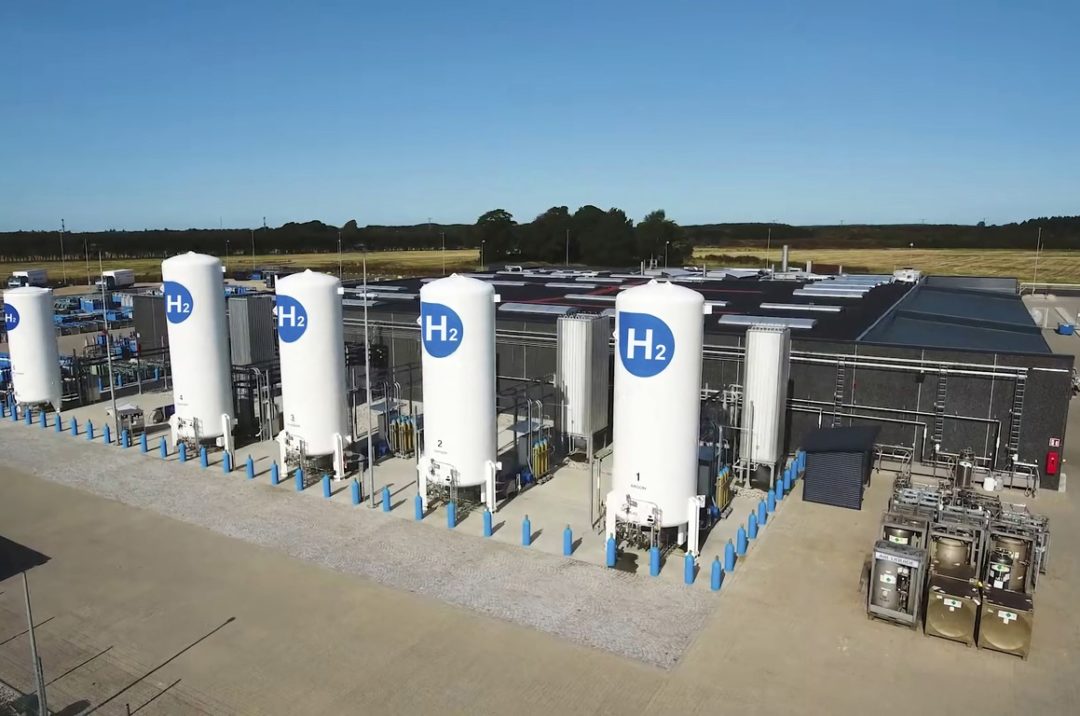
Visit Our Sponsors |
|
|
|
|
|
|
|
|
|
|
|
|
|
|
|
|
|
|
|
|
|
|
|
|
|
|
|
|
|
|
|
|
|
|
|
|
|
|

Photo: iStock.com/Aranga87
 Analyst Insight: An assessment: Which fleets, hydrogen or electric-powered, are the most viable option for businesses seeking to reduce their carbon footprint?
Analyst Insight: An assessment: Which fleets, hydrogen or electric-powered, are the most viable option for businesses seeking to reduce their carbon footprint?
The transport sector alone accounts for 27% of the U.K.’s carbon emissions, with road freight accounting for 7% of the U.K.’s emissions. The U.K. government has committed to zero emissions for all heavy goods vehicles (HGVs) of 26 tonnes and under by 2035 and all HGVs sold to be zero emission by 2040.
Many fleet providers and operators are assessing whether switching to alternative, greener fuels would be a viable and appropriate option for their vehicles. For cars, lighter vans, buses and in some cases HGVs on shorter journeys such as local authority vehicles, electric appears to be the way forward. However, for most HGVs, electric presents more of a challenge due to the vehicle weights and distances. As a result, in the short to medium term, operators are turning to alternative fuels such as hydrotreated vegetable oil (HVO), liquefied natural gas (LNG), bio LNG, and synthetic diesel to reduce their carbon emissions.
Long term, however, there are only two realistic options to achieve the government targets for HGV — these being electric or hydrogen-powered vehicles. Some businesses have already started to transition in part to electric vehicles (EVs), and research predicts that by 2025, 30% of all vehicle sales will be hybrid or electric. However, there are some definite barriers to electric and hydrogen vehicles as viable options across the globe.
Electric Vehicles
At SCALA’s last annual supply chain debate, David Cebon, director of the Centre for Sustainable Road Freight and professor of mechanical engineering at Cambridge University, detailed how the only way electric HGVs could be a feasible option would be through developing an Electric Road System (ERS).
An ERS, referring to an electric motorway whereby trucks could charge via overhead cables as they travel, would cost around £20 billion ($25 billion) in taxpayer investment. However, it could bring significant benefits. Firstly, it would reduce both the battery size necessary for EVs and the scale of the charging infrastructure required, both of which are current limitations on EVs reliability.
Also, despite the infrastructure needed, ERSs produce less noise than traditional motorways, reducing the noise pollution created by HGVs. There are also efficiency benefits, as EVs are much more efficient than combustion engines, meaning less energy is wasted and more goods can be transported with fewer emissions.
The energy necessary to power an ERS is also favorable in comparison to hydrogen. To power the U.K. HGV industry, an ERS network would require 10.6 gigawatts of electricity, equivalent to 3,500 wind turbines. In comparison, hydrogen vehicles need 35.6 GW, equivalent to 12,000 wind turbines. Considering this, electric does seem to be the preferable option for most businesses at present.
Hydrogen Vehicles
Hydrogen is also being given serious consideration as an alternative to traditional fossil fuel sources. The main benefit of green hydrogen, as with electric, is the reduction of emissions and pollutants, as it does not produce any CO2 when used as fuel. Additionally, it has a higher energy density than other renewable fuels, including wind and solar. This means more energy can be produced with fewer resources.
Despite this, green hydrogen does not appear to be a practical option for fleets at present, due to its high cost and energy-intensive production process. Hydrogen gas must be produced by extracting it from water, which requires large amounts of electricity. It is also expensive due to the costly renewables needed to power the electrolysis process.
Additionally, the infrastructure needed to safely transport and store green hydrogen is not yet widely available, creating additional logistical and financial challenges for fleet providers looking to use it as a fuel source. Therefore, unless there is significant investment either from the industry itself or the government, it’s unlikely to become a possible option in the near future.
Final Thoughts
The transport industry has made good progress over recent years in reducing its carbon footprint, however the challenge of reaching net zero requires a massive step change. There are certainly many issues to address, however, the key facts point to an ERS and electric HGVs as being by far the most efficient and feasible way forward for fleet providers. This is due to their cost-effectiveness and infrastructure development levels. By considering the switch to electric, fleets can see a significant reduction in their carbon emissions without sacrificing cost-efficiency and or reliability.
RELATED CONTENT
RELATED VIDEOS
Timely, incisive articles delivered directly to your inbox.

